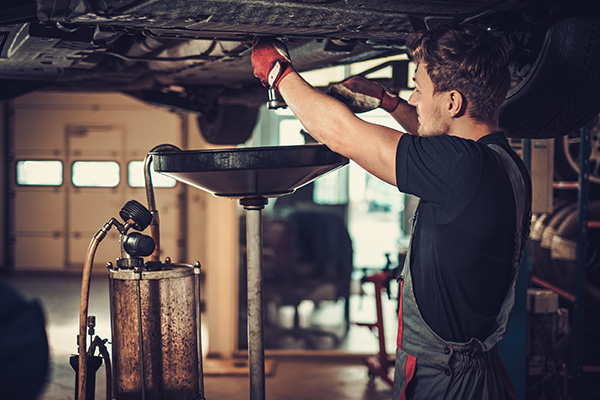
Skipping an oil change may not seem like a big deal at first. The engine still starts, the car still runs, and nothing feels off. But inside the engine, the effects start building up long before you notice anything from the driver’s seat. Clean oil is essential to the health of your engine. When it’s neglected, wear happens faster, temperatures rise, and expensive damage becomes more likely.
Engine Oil Does More Than Lubricate
Most people know oil’s main job is to reduce friction. It coats moving metal parts and prevents them from grinding against each other. But engine oil does more than just lubricate. It also:
- Carries heat away from hot components
- Suspends dirt, soot, and metal particles
- Prevents corrosion from moisture and combustion gases
- Maintains oil pressure for systems like variable valve timing
When oil is fresh, it flows easily and does its job well. As it gets older, it breaks down, thickens, and collects contaminants. This puts the entire engine at risk.
Oil Breakdown Happens Quietly
As oil is exposed to heat, pressure, and contaminants, it starts to lose its effectiveness. Additives that control acidity and clean deposits begin to degrade. The oil gets darker, thicker, and less able to flow into tight clearances.
Without good flow, metal parts start to touch. This increases friction and generates even more heat. In the worst cases, oil turns into sludge, a tar-like substance that clogs small oil passages. Once that happens, some parts may be starved of oil completely.
Sludge Can Wreck Key Engine Components
Sludge doesn’t just slow things down. It blocks vital oil flow to components like:
- Camshafts
- Crankshafts
- Oil pump pickup tubes
- Timing chain tensioners
These parts depend on clean oil to move freely and stay cool. Sludge buildup increases wear and can cause chain guides to crack, tensioners to fail, and pistons to seize. Repairs for these kinds of failures are expensive and time-consuming.
Turbocharged Engines Are Even More Vulnerable
If your car has a turbocharger, skipping oil changes is especially risky. Turbos spin at extremely high speeds and generate a lot of heat. They rely on a steady supply of clean oil for cooling and lubrication.
When oil is old or dirty, it can’t keep up with the heat load. The result is carbon buildup on the turbo bearings or seals, which eventually leads to turbo failure. Replacing a turbocharger can cost thousands of dollars—far more than a few missed oil changes.
Oil Pressure and Flow Can Drop Without Warning
You might not feel any difference when driving, but inside the engine, poor oil flow can cause gradual damage. Some systems, like variable valve timing or hydraulic lifters, depend on precise oil pressure to function correctly. Without it, you may notice rough idling, poor fuel efficiency, or engine hesitation.
In other cases, the damage may build slowly until something fails entirely. That’s why it’s important not to rely only on how the car feels. Once a warning light appears, it may already be too late.
Signs You’ve Waited Too Long for an Oil Change
While it’s best not to wait for symptoms, your engine might give you some early warnings:
- Oil appears thick and dirty on the dipstick
- Ticking or tapping sounds on startup
- Noticeable decrease in performance
- Engine feels hotter than usual
- Oil warning light comes on
If you notice any of these, it’s time to get your oil changed and have the engine inspected.
Regular Oil Changes Prevent Bigger Problems
The cost of an oil change is small compared to the cost of engine repairs. Following the service schedule recommended by your vehicle’s manufacturer is one of the most effective ways to protect your investment. For most cars, this means changing the oil every 5,000 to 7,500 miles, or more often if you drive under harsh conditions.
Routine service helps maintain oil pressure, keeps your engine clean, and allows technicians to spot other problems before they become serious.
Protect Your Engine at North Dallas Imports in Garland, TX
If it has been too long since your last oil change, visit North Dallas Imports in Garland, TX. Our technicians will drain the old oil, replace the filter, and use the right oil for your engine’s specific needs. Don’t wait for your engine to tell you something’s wrong. Stay on schedule and keep your vehicle running strong.